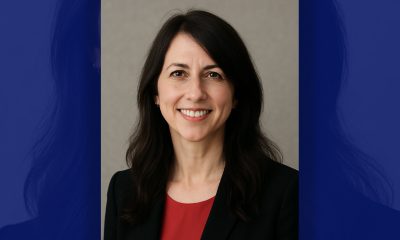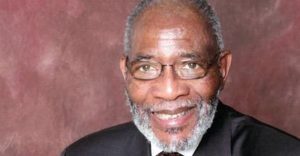Black History
Black History Month:
NEW ORLEANS DATA NEWS WEEKLY — Again, we are in the month of February which is Black History Month, where the nation observes and celebrates the achievements of African-Americans.
By Data News Staff
Again, we are in the month of February which is Black History Month, where the nation observes and celebrates the achievements of African-Americans.
Data News Weekly, in our role as The People’s Paper in Commemoration with of Black History Month, is doing a 4-part series on the history and legacy of the Historically Black Colleges and Universities (HBCU’s) in New Orleans and the State of Louisiana.
Our 4-Part Series focus on the Southern University System, Xavier University and Dillard University. It will highlight the schools, their rich history, educations they offer distinguished graduates and their impact on the community of New Orleans and the nation.
We believe that spotlighting these beacons on Black Excellence is important in an age where the relevance of these great institutions is of pressing importance. They have been and are where many movements of African-American uplift have taken place. Additionally, they have given opportunities to countless African-Americans to receive quality educations and to be able to compete and be successful in many fields of endeavor.
This is but a snapshot of our series:
Southern University of Louisiana
What began as a dream more than 136 years ago is today a living legacy of determination, commitment, and success. The Southern University and A&M College System is the only Historically Black University System in the United States.
Southern University is a Historically Black University with a main campus located in Baton Rouge, Louisiana. Originally founded in 1880 in New Orleans as Southern University in New Orleans, it began its mission of providing post-secondary education for African-Americans with 12 students and 5 faculty members. In 1890 the school’s name was changed to Southern University, and in 1892 it was recognized as a land grant college. In 1912 the school awarded its first baccalaureate degree, and in 1914 the campus was moved to the State Capitol in Baton Rouge.
The Southern University System also includes another four-year campus in New Orleans, a two-year campus in Shreveport, and a law school in Baton Rouge. The four campuses were united as a system in 1975 by the state legislature, creating the largest Historically Black University in the United States.
Xavier University of Louisiana
Over its nine-decade history Xavier University is recognized as a national leader in the sciences and the liberal arts. It also carries the distinction as being the only Historically Black and Catholic University in the United States.
In a survey of students conducted for The Wall Street Journal/Times Higher Education College Rankings, based on students’ opinions on how well their college or university is preparing them for their career, Xavier received the highest score of any school in the South – in fact, it received the highest score of any of the more than 1,000 schools that were included in the 2017 WSJ/THE rankings.
• Ranked #1 in the nation in awarding bachelor’s degrees to African-American students in the biological and biomedical sciences, the physical sciences, and physics.
• Ranked #1 in the nation in the number of African-American graduates who go on to complete medical school.
• Among the nation’s top four colleges of pharmacy in graduating African-Americans with Doctor of Pharmacy (Pharm D) degrees.
• Ranked#3 in the nation in the number of African-American graduates who go on to earn a Ph.D. in science and engineering disciplines.
• The Department of Physics is #1 in the nation for awarding African-Americans baccalaureate degrees in physics and the physical sciences, according to the latest report from the American Institute of Physics (AIP). Xavier is consistently ranked by the American Chemical Society as one of the top 25 universities in the nation in awarding bachelor’s degrees in chemistry.
• U. S News “Best Colleges” Guide 2018 rates Xavier as the #1 “best value” among southern regional colleges and universities. The same report ranked Xavier No. 5 spot among 70 Historically Black Colleges and Universities and No. 25 among 140 schools in its grouping of the Best Regional Colleges – South. Schools are considered Regional Universities if they offer a full range of undergraduate programs and some master’s programs but few doctoral programs.
• College Consensus, a unique college ratings website that aggregates publisher rankings and student reviews, ranks Xavier as the nation’s #2 HBCU (Historically Black Colleges and Universities) in its newly released publication, Best HBCUs for 2018. It also ranks Xavier as #3 among all Louisiana colleges.
Dillard University
Celebrating its 150th Anniversary this year Dillard University has a rich heritage that will be on full display this year as they commemorate a century and a half of Black Excellence in Education. This is a short history of the early years of Dillard University.
In 1869, with support from the American Missionary Association of the Congregational Church (now the United Church of Christ) and the Freedmen’s Aid Society of the Methodist Episcopal Church (now the United Methodist Church), Straight University and the Union Normal School were founded. They were subsequently renamed Straight College and New Orleans University, respectively. Gilbert Academy, a secondary school, was a unit of New Orleans University.
In 1889, New Orleans University opened a medical department, including a school of pharmacy and a school of nursing. The medical department was named Flint Medical College and the affiliated facility was named the Sarah Goodridge Hospital and Nurse Training School. The medical college was discontinued in 1911, but the hospital, including the nursing school, was continued under the name Flint-Goodridge Hospital. Straight College operated a law department from 1874 to 1886.
In 1935, New Orleans University and Straight College merged to form Dillard University. The trustees of the new university called for the implementation of a co-educational, interracial school, serving a predominantly African-American student body adhering to Christian principles and values. The university was named in honor of James Hardy Dillard, a distinguished academician dedicated to educating African-Americans.
Dillard trustees elected to continue the work of the hospital but not that of Gilbert Academy. The latter continued operation as a separate institution under the sponsorship of the Board of Education of the Methodist Church until 1949. The university operated Flint-Goodridge Hospital of Dillard University from 1932 until 1983.
Will W. Alexander was chosen to be the acting president of Dillard University. He served from 1935 to 1936. At the time of his appointment, he was Director of the Commission on Interracial Cooperation (CIC), which actively campaigned against lynching and conducted research studies of issues pertaining to “Negro Welfare” and other Southern “problems.”
We at Data News Weekly look forward to bringing you this series on HBCU’s in Louisiana in the Month of February as we celebrate Black History Month.
Activism
Oakland Post: Week of November 26 – December 2, 2025
The printed Weekly Edition of the Oakland Post: Week of November 26 – December 2, 2025

To enlarge your view of this issue, use the slider, magnifying glass icon or full page icon in the lower right corner of the browser window.
Activism
Oakland Post: Week of November 19 – 25, 2025
The printed Weekly Edition of the Oakland Post: Week of November 19 – 25, 2025

To enlarge your view of this issue, use the slider, magnifying glass icon or full page icon in the lower right corner of the browser window.
Activism
IN MEMORIAM: William ‘Bill’ Patterson, 94
Bill devoted his life to public service and education. In 1971, he became the founding director for the Peralta Community College Foundation, he also became an administrator for Oakland Parks and Recreation overseeing 23 recreation centers, the Oakland Zoo, Children’s Fairyland, Lake Merritt, and the Henry J. Kaiser Convention Center.

William “Bill” Patterson, 94, of Little Rock, Arkansas, passed away peacefully on October 21, 2025, at his home in Oakland, CA. He was born on May 19, 1931, to Marie Childress Patterson and William Benjamin Patterson in Little Rock, Arkansas. He graduated from Dunbar High School and traveled to Oakland, California, in 1948. William Patterson graduated from San Francisco State University, earning both graduate and undergraduate degrees. He married Euradell “Dell” Patterson in 1961. Bill lovingly took care of his wife, Dell, until she died in 2020.
Bill devoted his life to public service and education. In 1971, he became the founding director for the Peralta Community College Foundation, he also became an administrator for Oakland Parks and Recreation overseeing 23 recreation centers, the Oakland Zoo, Children’s Fairyland, Lake Merritt, and the Henry J. Kaiser Convention Center.
He served on the boards of Oakland’s Urban Strategies Council, the Oakland Public Ethics Commission, and the Oakland Workforce Development Board.
He was a three-term president of the Oakland branch of the NAACP.
Bill was initiated in the Gamma Alpha chapter of Kappa Alpha Psi Fraternity.
In 1997 Bill was appointed to the East Bay Utility District Board of Directors. William Patterson was the first African American Board President and served the board for 27 years.
Bill’s impact reached far beyond his various important and impactful positions.
Bill mentored politicians, athletes and young people. Among those he mentored and advised are legends Joe Morgan, Bill Russell, Frank Robinson, Curt Flood, and Lionel Wilson to name a few.
He is survived by his son, William David Patterson, and one sister, Sarah Ann Strickland, and a host of other family members and friends.
A celebration of life service will take place at Henry J. Kaiser Convention Center (Calvin Simmons Theater) on November 21, 2025, at 10 AM.
His services are being livestreamed at: https://www.facebook.com/events/1250167107131991/
In lieu of flowers, donations can be made to the Euradell and William Patterson scholarship fund TBA.

-

 Activism4 weeks ago
Activism4 weeks agoOakland Post: Week of November 12 – 18, 2025
-

 Activism3 weeks ago
Activism3 weeks agoIN MEMORIAM: William ‘Bill’ Patterson, 94
-

 Activism4 weeks ago
Activism4 weeks agoHow Charles R. Drew University Navigated More Than $20 Million in Fed Cuts – Still Prioritizing Students and Community Health
-

 Bay Area4 weeks ago
Bay Area4 weeks agoNo Justice in the Justice System
-

 #NNPA BlackPress3 weeks ago
#NNPA BlackPress3 weeks agoLewis Hamilton set to start LAST in Saturday Night’s Las Vegas Grand Prix
-

 #NNPA BlackPress3 weeks ago
#NNPA BlackPress3 weeks agoBeyoncé and Jay-Z make rare public appearance with Lewis Hamilton at Las Vegas Grand Prix
-

 Activism3 weeks ago
Activism3 weeks agoOakland Post: Week of November 19 – 25, 2025
-

 #NNPA BlackPress4 weeks ago
#NNPA BlackPress4 weeks agoProtecting Pedophiles: The GOP’s Warped Crusade Against Its Own Lies




















































